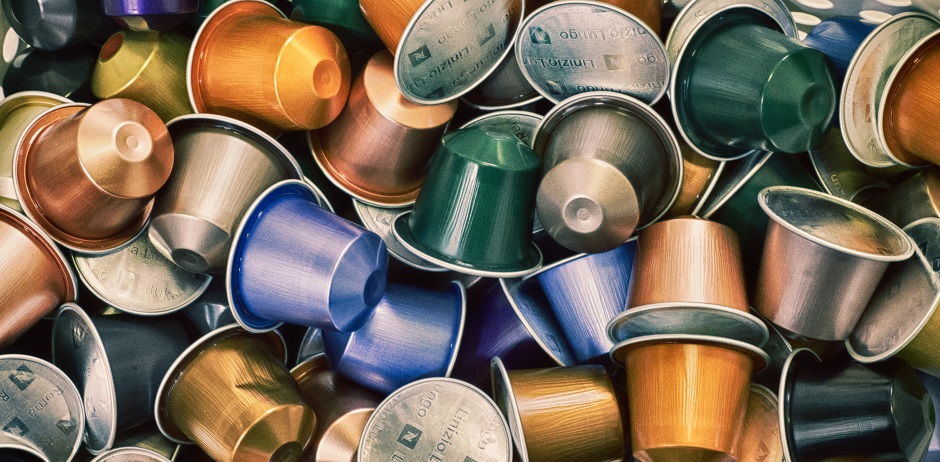
In a world fueled by convenience, single-use coffee pods have gained immense popularity among coffee enthusiasts. These small, pre-portioned pods promise a quick and hassle-free caffeine fix. However, as we enjoy our daily cups of coffee, it's crucial to examine the environmental impact of these seemingly innocuous pods. In this blog post, we will delve deep into the consequences of single-use coffee pods on our planet and explore eco-friendly alternatives for coffee lovers who wish to sip their brews with a clear conscience.
The Brewing Problem
Single-use coffee pods, often associated with brands like Keurig, Nespresso, and others, have infiltrated homes and offices around the globe. These pods are typically made of a combination of plastic, aluminium, and coffee grounds, and their convenience is undeniable. However, their convenience comes at a steep environmental cost.
-
Waste Generation: One of the most glaring issues with single-use coffee pods is the sheer volume of waste they generate. Millions of pods are discarded daily, and many of them end up in landfills, taking hundreds of years to decompose fully. The plastic and aluminium components make recycling a complex and often unfeasible process.
-
Energy Consumption: The production and disposal of single-use pods consume vast amounts of energy and resources. The extraction and processing of aluminium, the manufacturing of plastic components, and the transportation of these pods contribute to greenhouse gas emissions.
-
Resource Depletion: The demand for single-use coffee pods places immense pressure on natural resources. Coffee production requires substantial land, water, and energy resources, and the convenience of pods leads to increased coffee consumption, exacerbating the strain on these resources.
-
Toxic Chemicals: The plastic and aluminium used in some pods can release toxic chemicals when subjected to high temperatures, potentially contaminating the coffee and posing health risks to consumers.
Eco-Friendly Alternatives
While the environmental impact of single-use coffee pods is concerning, coffee lovers need not sacrifice their favourite brews for the sake of the planet. Several eco-friendly alternatives exist that allow you to enjoy your coffee responsibly:
-
Reusable Coffee Pods: Reusable coffee pods made of stainless steel or BPA-free plastic are designed to fit into popular pod-based coffee machines. These pods can be filled with your favourite ground coffee, providing the same convenience without the environmental guilt. After brewing, simply empty the grounds, rinse the pod, and use it again.
-
Compostable Pods: Some companies are now producing compostable coffee pods that break down naturally and can be added to your compost pile. These pods are typically made from plant-based materials and are free from plastic and aluminium, making them a more sustainable choice.
-
Coffee Beans and Filters: For a classic and eco-friendly coffee experience, consider using whole coffee beans and a reusable metal or cloth filter. This method produces minimal waste and allows you to enjoy a more authentic coffee flavour.
-
French Press or Pour-Over: Opt for manual brewing methods like French press or pour-over, which require no disposable pods or filters. These methods allow you to control the brewing process and reduce waste significantly.
-
Local Coffee Shops: Support your local coffee shops that prioritise sustainability. Many cafes now offer discounts to customers who bring their own reusable cups, helping to reduce the demand for single-use pods.
-
Subscription Services with Eco-Friendly Packaging: Consider coffee subscription services that use eco-friendly packaging for their beans. Some companies provide coffee in biodegradable bags or reusable containers, minimising waste.
The Role of Consumers
While eco-friendly alternatives are readily available, it's essential to recognize that consumers play a pivotal role in driving change within the coffee industry. Here are some ways individuals can contribute to a more sustainable coffee culture:
-
Educate Yourself: Understand the environmental impact of your coffee choices and make informed decisions based on that knowledge.
-
Reduce and Reuse: Minimise waste by choosing reusable options, such as cups, mugs, and filters. If you must use single-use pods, seek out compostable options.
-
Advocate for Change: Support policies and initiatives that promote sustainability in coffee production and distribution. Encourage coffee companies to adopt eco-friendly practices.
-
Reduce Coffee Consumption: Moderation is key. Reducing your daily coffee consumption can help alleviate the strain on natural resources.
-
Engage with Sustainable Brands: Support coffee brands that prioritise sustainability and transparency in their supply chains.
Conclusion
The environmental impact of single-use coffee pods cannot be ignored. As coffee lovers, we have a responsibility to address this issue and make more sustainable choices. By opting for eco-friendly alternatives, advocating for change, and reducing our coffee consumption when necessary, we can enjoy our favourite beverage while protecting the planet for future generations. The choice is in our hands—let's brew a greener, more sustainable future, one cup at a time.



